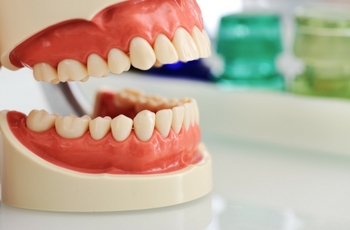
TMD, or temporomandibular joint disorders, can affect people of all ages.
- Tender jaw muscles
- Popping or clicking
- A jaw that is difficult to open
- Headaches, ear pain or pressure behind the eyes
Are you dealing with problems relating to your temporomandibular joint? It’s actually more common than you might think. And though there are a number of causes, it can affect each person differently.
What Causes TMD?
In most cases, TMD can be corrected without the need for invasive surgery. Sometimes, poorly aligned teeth are to blame, so considering braces may be a viable option. For others, stress plays a big role in temporomandibular joint problems, as it’s very common to clench your jaw when angry, nervous or tense. Practicing relaxation techniques can help calm your jaw muscles—especially before sleep. During slumber, many patients opt for mouth guards to avoid nighttime grinding.
What You Should Do If You Suspect TMD
If your jaw is giving you trouble, consider booking an appointment for a checkup. We’ll examine your mouth and jaw to help devise the best treatment plan possible. We look forward to seeing you!
Sources: DeltaDenta.com

